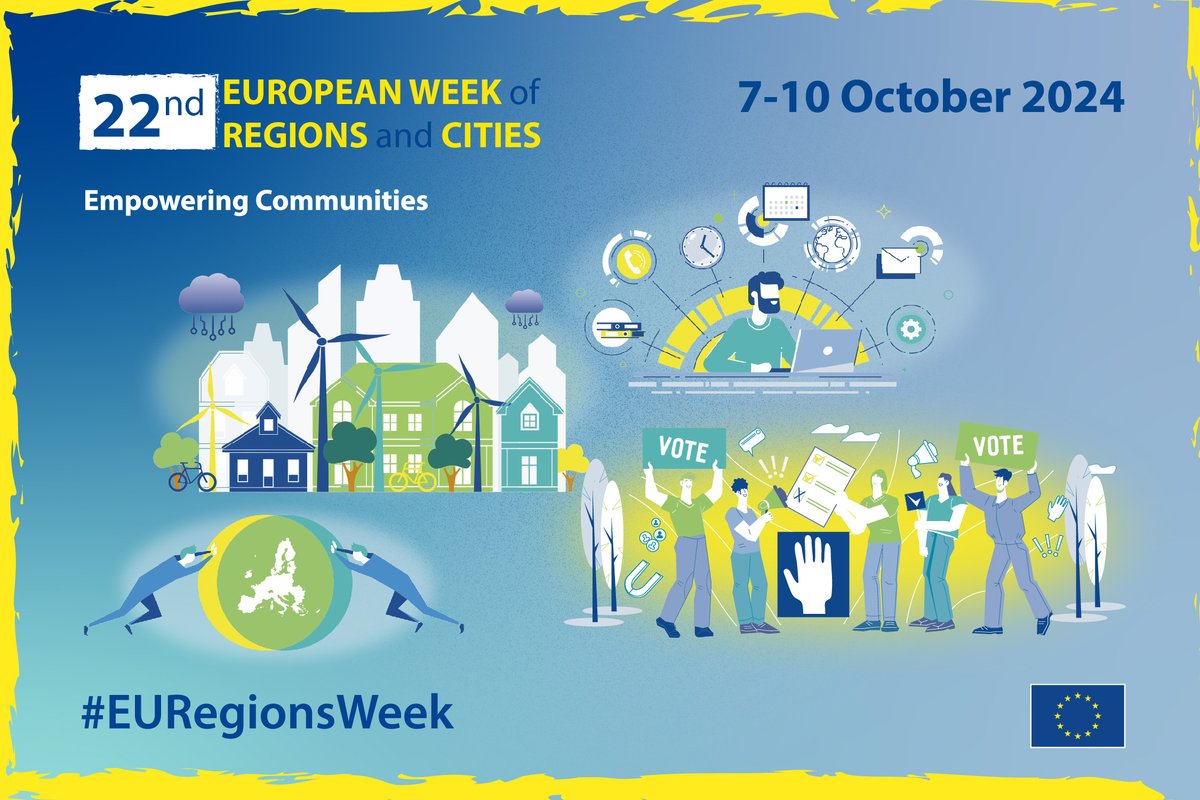
The European Week of Regions and Cities, the largest event dedicated to regional and urban policy in Europe, kicked off in Brussels with renewed enthusiasm. This year’s event, running from October 7th to 10th, marks a pivotal moment for regional development, focusing on key topics like green transition, digital innovation, and social cohesion. At the heart of the discussion is the empowerment of regions and cities, seen as central actors in addressing pressing global challenges such as climate change, economic recovery, and social inequalities.
Opening Ceremony at the European Parliament: A Call to Action
The event commenced with a prominent plenary session at the European Parliament, setting the stage for the week’s activities. Keynote speeches were given by the President of the Committee of the Regions, the former Commissioner for Cohesion and Reforms, and various MEPs representing local regions and cities emphasized the need for regions and cities to play a leading role in the EU’s future strategy. The President of the European Committee of the Regions (CoR), Vasco Alves Cordeiro, opened the session, underscoring the importance of subsidiarity—the principle that decisions should be made as close as possible to the citizens they affect.
Moreover, for the first time a representative of an EU public institution publicly acknowledged Israel’s responsibility for committing acts of genocide against Palestine and Lebanon. While making this significant statement, the president also issued a call for peace, urging all parties to pursue a ceasefire and bring an end to the ongoing conflict.
Key Findings from the 2024 Report
This year’s EWRC comes with the release of a comprehensive report on the state of regions and cities in Europe. The findings reveal both the opportunities and challenges faced by local authorities in achieving the EU’s long-term strategic goals.
- Driving the Green Transition Regions and cities are leading the way in implementing climate action plans and transitioning to sustainable energy systems. Over 70% of EU environmental regulations are executed at the local level, making re,eed for greater financial and technical support to ensure that less affluent regions can keep pace with more developed ones. Cordeiro remarked the importance of the people living in the outmost regions and the need for the EU to include also them in the next MFF.
- In addressing economic recovery and innovation, President Cordeiro emphasized the urgency of unity in light of the ongoing war in Ukraine, which has now stretched into its second year. “We need to be more united than ever and support our Ukrainian allies in their fight for victory,” he stated. Cordeiro highlighted the vital role of cohesion and cooperation seen during the pandemic, affirming that Europe has proven its ability to respond effectively to crises and will rise to meet this challenge as well. However, he stressed the importance of involving regions and cities in this effort. In a direct call to President von der Leyen, Cordeiro insisted that regional and local authorities must be included in the new Financial Framework, warning against the European Commission’s current approach, which risks excluding
- Reduce the gap between rural and urban areas: One of the most pressing concerns raised in the report is the growing urban-rural divide. Rural areas, particularly in eastern and southern Europe, face depopulation, aging populations, and limited access to essential services. The report calls for a renewed focus on rural development policies, including digital infrastructure, sustainable agriculture, and smart village initiatives to close the gap.
- Strengthening governance and citizen participation: The report also highlights the need for more inclusive and participatory governance at the regional level. With the EU facing growing distrust among certain segments of its population, it is crucial that local and regional authorities strengthen their engagement with citizens. The report advocates for the increased use of participatory budgeting, citizens’ assemblies, and other forms of direct democracy to enhance transparency and trust in public
A Week of Debates and Future Opportunities
Throughout the week, hundreds of events, workshops, and networking sessions took place, bringing together policymakers, academics, and civil society leaders to exchange ideas and best practices. From climate resilience in urban planning to cross-border cooperation on renewable energy, the EWRC offers a platform for regions and cities to learn from each other and develop concrete solutions to shared challenges.
Key sessions delved into how regions can access EU funds more efficiently, particularly in the context of the new Multiannual Financial Framework (MFF) and the recovery package. There was also a strong focus on the role of regions in the EU’s external relations, particularly in fostering partnerships with neighboring countries and addressing migration challenges.
Conclusion: A Path Forward
As the European Week of Regions and Cities unfolds, one message is clear: empowering regions and cities is not just a political priority, but an absolute necessity for the future of Europe. The week offers a crucial opportunity for regional leaders to showcase their potential and for the EU to reaffirm its commitment to a more decentralized, inclusive, and resilient Europe.
The challenges are significant, but with the right support, Europe’s regions and cities have the power to drive transformative change—from achieving climate neutrality to ensuring social justice and economic prosperity for all citizens.

